Bulletin Board
The place where you can stay up to date with the latest events, stories, news, and opportunities for our City Relief community.

A Lonely Christmas for Our Unhoused Neighbors and What We Can Do About It
The Christmas season is officially here. Twinkling lights, packed calendars, school recitals, and Amazon boxes arriving at the door around the clock (just me?). And somewhere in the garage sits the bin of decorations we promised ourselves we'd organize last year. It's a beautiful kind of chaos. At least for most of us.
But in the middle of all that holiday hustle, while we're sprinting from one thing to the next, many of our unhoused neighbors are standing still, quietly overlooked as life moves around them.

The Week I Became the Good Shepherd (Guest Newsletter from Dan Sadlier)
On the morning of October 30th, 2024, our apartment—usually alive with six kids—was quiet. Around 8 a.m., our son Judah went to check on his oldest sister, our adopted daughter, "M." She wasn't there. I walked upstairs, assuming she was out with the dog or in the shower. But her room was empty, and her phone, something no 21-year-old ever leaves behind, sat on the table. Within minutes, our quiet morning became every parent's nightmare.

Experts in Gratitude
Today is the annual tradition of gathering with loved ones, eating a ridiculous amount of food, and acknowledging the good things that we experience throughout the year. Gratitude is an exercise, not a feeling. And frankly, I'm out of shape. I don't know about you, but I struggle to remain "thankful" on a day-to-day basis.

The Cold Some People Can't Escape
Have you ever felt the kind of cold that sinks all the way into your bones? Not the quick shiver you get walking to your car, but the kind of chill you can't shake with a hot drink or an extra blanket?

What happens when the first snow falls and you have nowhere to go?
It got cold this week. Not sure where you're reading this, but in New Jersey and New York City we saw the first snow flurries of the year. It reminded me of my first winter doing outreach with City Relief back in 2010. I was still working part-time at Starbucks but went out as often as I could to serve alongside our team.

Responding to hunger with hope and celebration
People are hungry and scared, and we need to respond.
The question is…how?
Over the next six weeks, City Relief is hosting two really powerful events designed to help our community respond with both compassion and celebration.

Millions of Working Families Could Lose Groceries Tomorrow
If SNAP benefits are halted on November 1, millions of working families will lose access to groceries overnight.

How Do You Keep Showing Up When You’re Running on Empty?
There's a kind of strength we don't talk about enough—the strength it takes to keep showing up for work when the odds are stacked against you.
Take Saheed Adebay Aare, for example. Every evening around 5 p.m., Saheed left the shelter where he was staying in New York City and began a long, exhausting commute to his job at an Amazon warehouse in Carteret, New Jersey. The trip took hours—buses, trains, and transfers across bridges and boroughs—all so he could clock in for a short, four-hour shift.

What if getting online was the first step out of homelessness?
Last week, I wrote about how healthcare can trap people in homelessness. This week, I want to talk about another barrier that rarely makes the headlines, and one that quietly determines who gets ahead and who gets left behind: access to technology.
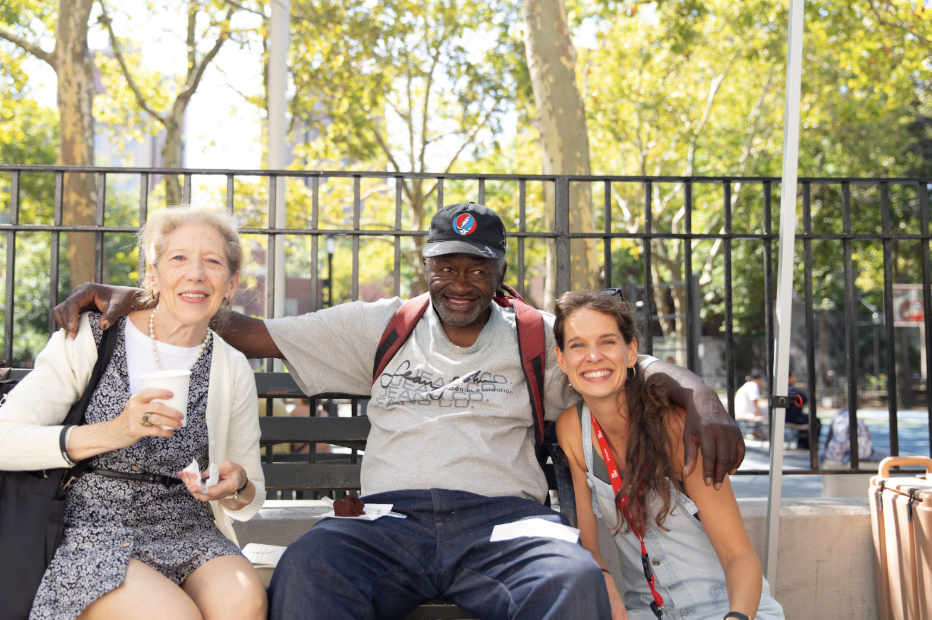
Would you turn down a job to keep your teeth?
In the U.S., for better or worse, healthcare is inextricably linked to employment and income. So this week I want to talk about healthcare and how the very system that's supposed to help people heal often traps them in homelessness instead.

Would you leave your sick child to keep your job?
Tasha was working as a cashier at a grocery store in Queens. Every week, nearly half of her paycheck went to childcare for her two young kids. It was barely sustainable, until her youngest came down with a fever. Because her job was hourly, she had no paid time off. That meant two impossible options: call out and lose income she couldn't spare, or go to work and leave her sick child unattended. Neither option was really an option at all.

The High Cost of Getting to Work
Let me tell you about Carlos. He'd just landed a dishwashing job in Midtown. The hours weren't glamorous, but he was grateful for the opportunity. The challenge? Carlos was living in the Bronx, and the only way to keep that job was an hour-long subway commute—at a cost of $127 a month for a MetroCard. That was more than a third of his first paycheck. And with fares set to rise again next year, that burden is only going to grow heavier.
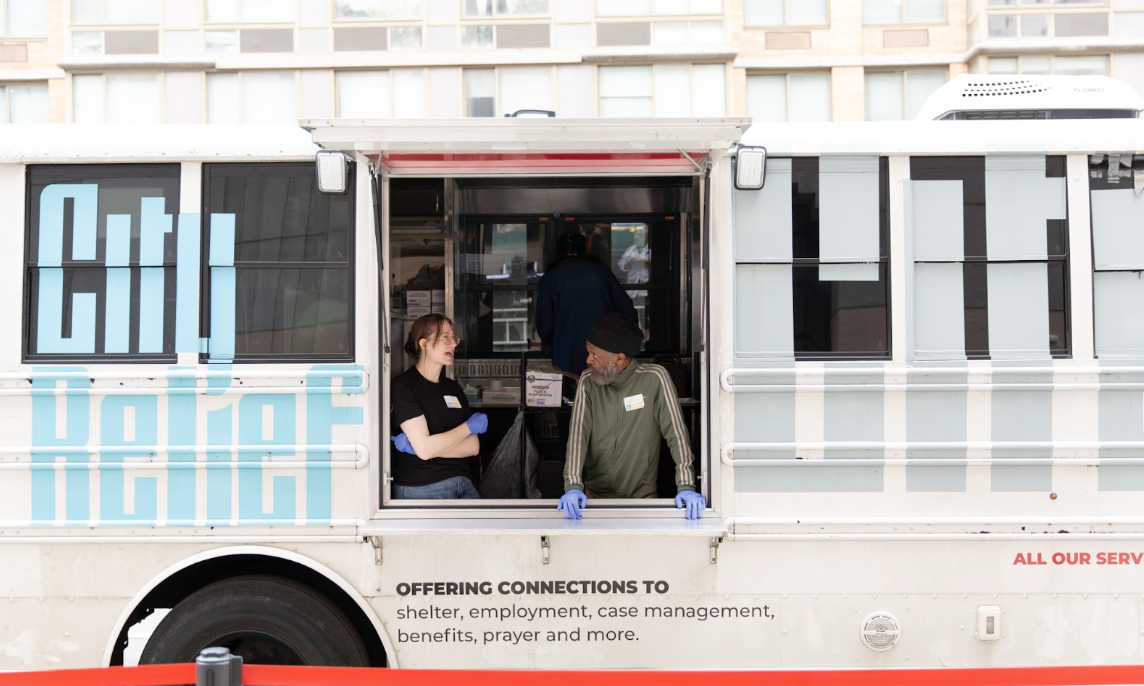
How does a thriving economy lead to more homelessness?
When most people think about homelessness, they think about poverty. It makes sense: if someone doesn't have money, they don't have housing.
So there must be a correlation between disadvantaged communities and the number of residents who fall into homelessness, right? And if that’s the case, why is there so much homelessness in cities that also have experienced economic success like Los Angeles, San Francisco, and New York City?
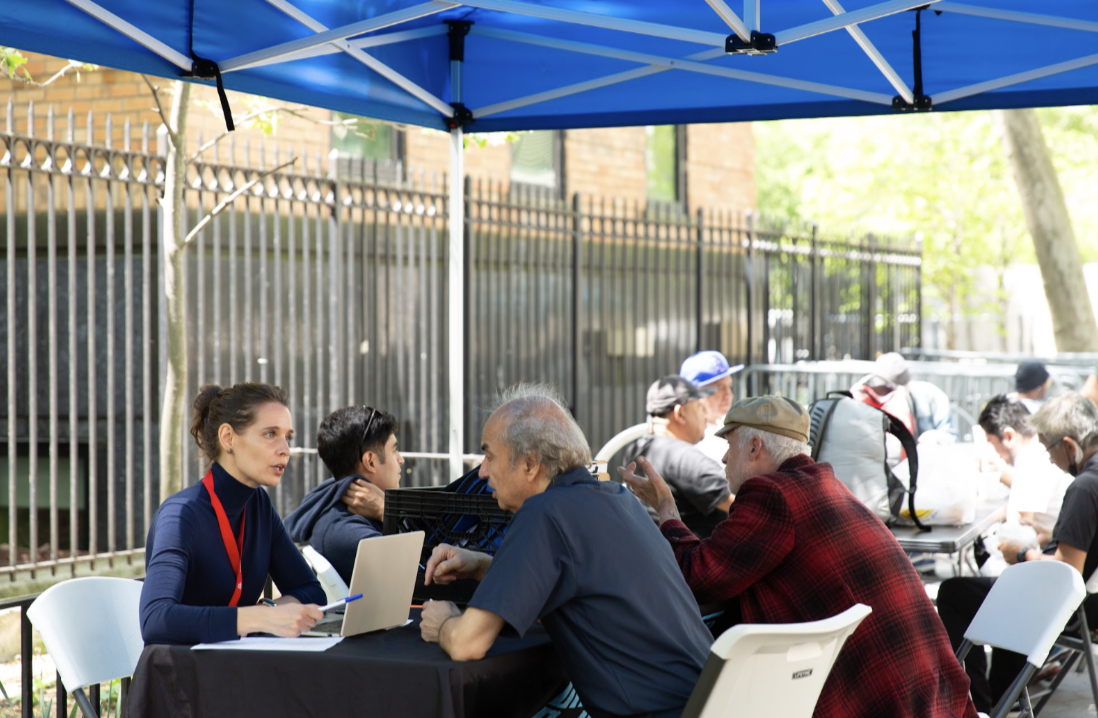
Working and Homeless: Lies About Laziness
About ten years ago, my wife and I were visiting a church in Manhattan. After the service, we wandered through Union Square Park on a perfect spring day. Vendors, artists, and musicians filled the sidewalks, and the trees were exploding with new life and vivid colors.
That's when I noticed a man sitting on the ground with a cardboard sign that read:
"Need money for work, anything helps."
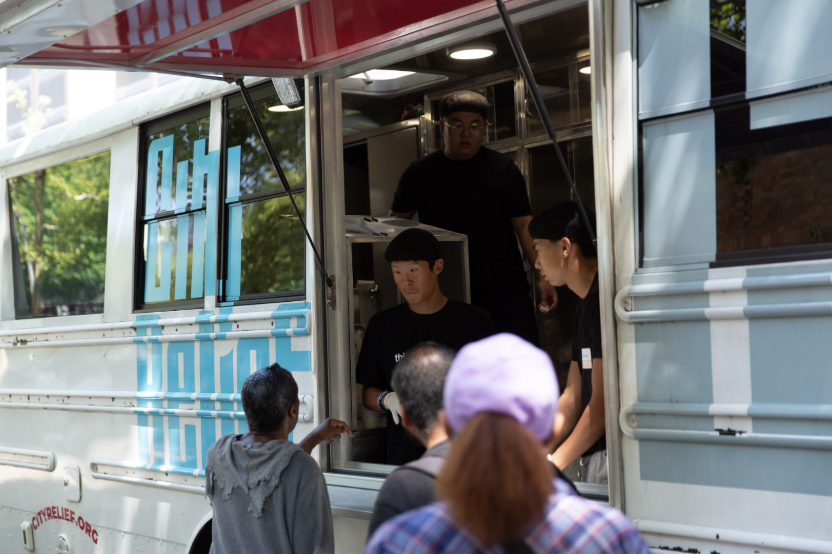
Hunger Doesn’t Have to Win
All month, we've looked at the invisible crisis of hunger in our cities—how it intersects with homelessness, health, access, and affordability. We've talked about people eating dollar meals because they have no kitchen, skipping food to pay for transit, and developing chronic illnesses from diets shaped by scarcity.
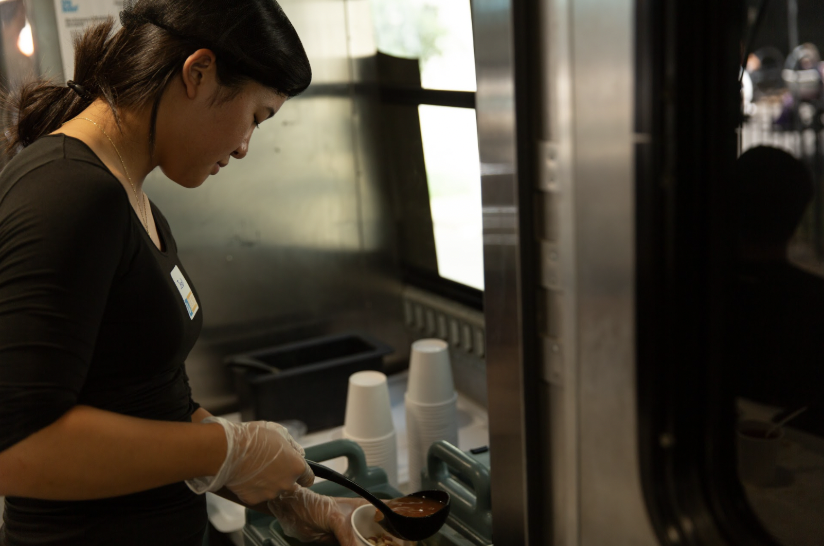
The Exponential Impact of Higher Food Costs
If you've walked through a grocery store or ordered takeout recently, you've felt it. Our fridge broke down a few weeks ago, and we had to order food for three days while waiting on a replacement part. Nearly $70 for some Chinese takeout for a family of four, and that was just dinner! Prices like that aren't just inconvenient. They’re unsustainable.
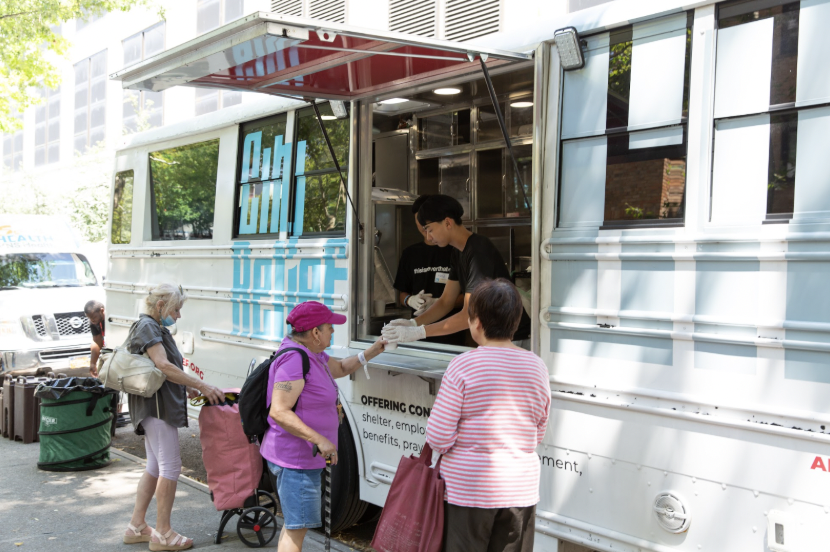
The High Cost of Cheap Food
A while back, I met a woman who had just moved into a shelter after months of living in her car. She told me she'd been eating fast food almost every day, not because she liked it, but because it was the only thing she could get. No kitchen. No fridge. No place to store leftovers. She was working odd jobs and surviving day-to-day, so anything that required prep or cleanup was off the table—literally. That left her with the dollar menu.
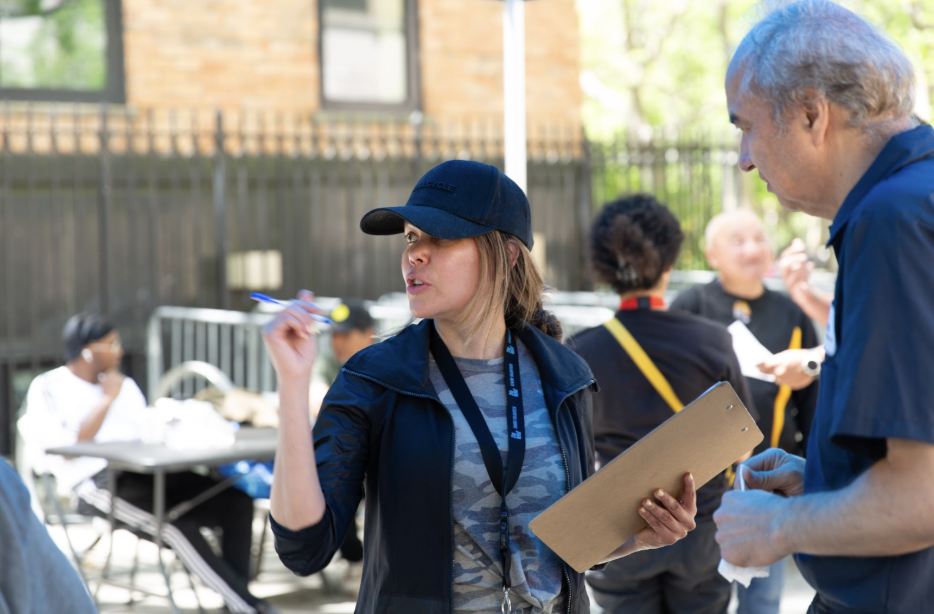
“You get what you get and you don’t get upset” … even if your health depends on it
I have a friend I met on the streets years ago who I'll call Sean. He's a short man in his fifties with dark hair and a joy that radiated love and warmth to everyone around him. Every time I saw him, Sean would call my name and insist on a hug (I'm not a hugger, but I made an exception for Sean). His smile could lift your whole day.
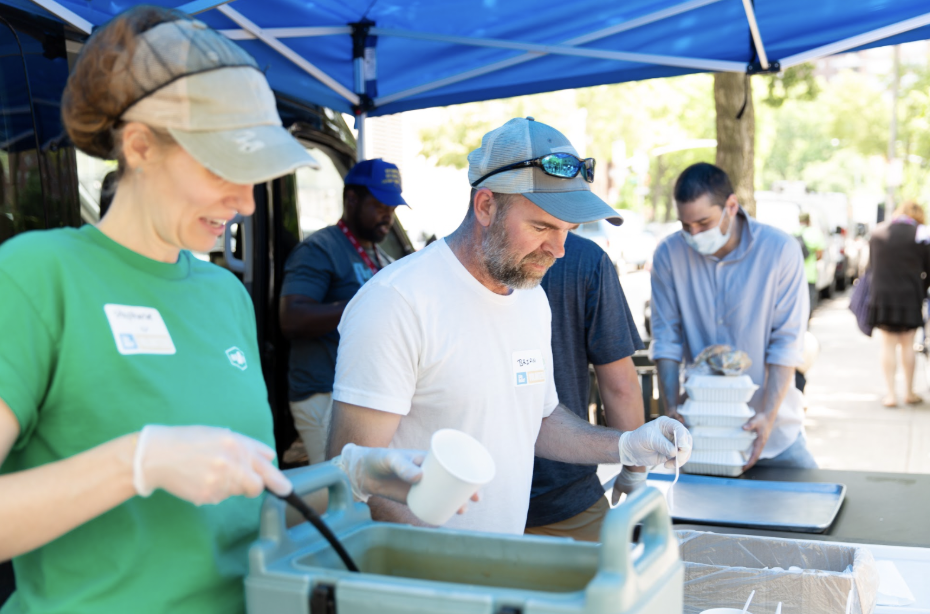
6 Cups of Soup and a Gut Punch I Won’t Forget
A few years ago, during an outreach in Manhattan, a young man approached me on the sidewalk. I'll call him Leon. He was soft-spoken and polite. A little worn out. He asked if we had anything to eat, so I helped him with a cup of our famous vegetable soup—made fresh that morning in our 80-gallon soup kettle.

Natural Disasters Don’t Discriminate, But the Recovery Does
I met him a few months ago in Harlem. He was in his fifties — well dressed, articulate, and looking for work. A proud Howard University graduate, he once worked in their IT department. After getting married, he moved to New York City and built a life. But then came a divorce, and not long after, a fire in his apartment building that started when a neighbor left the stove on overnight.
